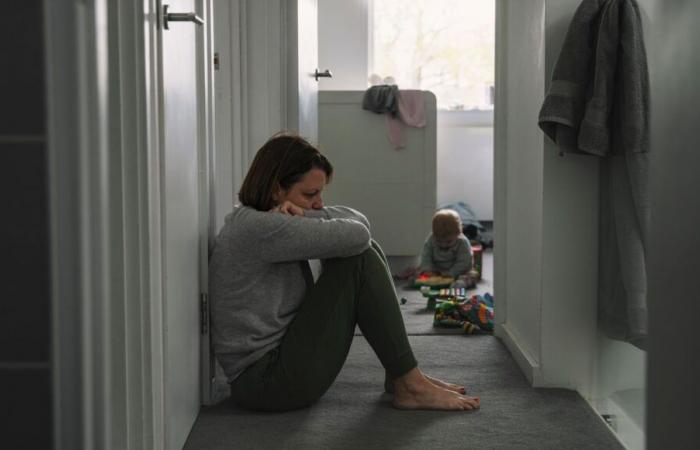What does depression look like in women? Studies show that women are affected twice as much as men… We will see if hormonal cycles, contraception, pregnancy, pre-menopause, menopause influence the occurrence of a depressive episode. And beyond the biological reasons, we will see the impact of socio-cultural reasons, the weight of discrimination, inequalities and violence suffered by women?
Defining depression
According to Inserm, depression affects 350 million people worldwide: one in five people have suffered, are suffering or will suffer from depression during their lifetime. Hugo Bottemane adds “In women, depression is more common and can present different symptoms, atypical or hidden behind deceptive trappings of fatigue for example, a strange feeling of space with the world, or dissociation… The woman sometimes does not realize that she is experiencing depression.” Lucie Joly explains: “It is a very complex disorder, much deeper than simple depression. It is one of the main causes of disability. It disrupts romantic, family and social relationships and it considerably increases the risk of suicide. This disease undoubtedly represents one of the most trying human experiences. And there are no biological tests, no imaging, no lumbar puncture to diagnose it…. We rely on the DSM (Diagnostic and Statistical Manual of Mental Disorders) to make the diagnosis: more than fifteen days of a state of sadness or loss of interest accompanied by at least four symptoms among psychomotor slowdown, concentration disorder, sleep or appetite disturbances and suicidal thoughts.”
Depression, a female specificity?
A common misconception is that we are sad when we are going through depression. However, explains Hugo Bottemane: “There are depressions beyond sadness. All emotion disappears.” There are also hidden depressions. This is the case with antenatal or postpartum depression: “Women do not allow themselves to verbalize their difficulties, because they are supposed to be happy. However, postpartum depression affects one in five women. And suicide is the leading cause of death in the year following childbirth.”
Before adolescence, there is as much depression in boys as in girls. But after puberty, young women are more prone. Hugo Bottemane: “From the age of thirteen, depression becomes much more significant in women. It is thought that hormonal variations, which men do not experience, could play a role by having effects on brain plasticity, the way in which the brain recomposes connections. They would affect our mental health, but also our emotions, the way in which we manage beliefs, the way in which we perceive the environment…”
Very few women consult psychiatrists. They often attribute their emotional pain to menopause or premenstrual dysphoric disorders (a condition that causes pain and depression that affects 5% of women). “But the female population is not the only one to suffer from depression,” warns Dr. Bottemane, who acknowledges that focusing on this symptom in women allows for the development of more appropriate medicine.
Social reasons?
The physical, psychological, moral and symbolic violence suffered by women would also explain the prevalence of depression. “The trap of biology is its explanatory power, and its ability to look the other way. Women are the main victims of physical and sexual violence. In Europe, for example, 20% of women have suffered violence. In France, 122 women were killed by their partner in 2022. In cases of rape, 47% of the attackers were the partner or ex-partner. This rape culture, and the trivialization of sexual violence, have a profound and devastating impact on women’s mental health.” explains Dr Lucie Joly.
What about menopause?
Hugo Bottemane explains that most studies have shown that the period at risk of depression is located “ between five and ten years before menopause. It affects one in three women… The main link between menopause and depression is sleep disturbances that can be managed.”
Advice
- When to consult? For Lucie Joly: “From the moment when sadness affects one’s functioning, when one can no longer go to work, one consults to receive help.”
- Thinking about the thyroid, Hugo Bottemane: “ Sometimes you treat depression for years, and you find out there’s hypothyroidism.”
- Practice physical activity
- Eat a healthy diet and… Eat soy? Japanese women have much fewer hot flashes. Among the avenues put forward: soy, which would replace natural estrogens.
- Limit stress
The rest is to be listened to…
Guests:
- Dr Lucie Joly: She is a psychiatrist at Saint-Antoine Hospital. She specializes in women’s mental health, particularly during pregnancy and postpartum. She is also a professor at Sorbonne University.
- Dr Hugo Bottemane: He is a psychiatrist at Bicêtre Hospital, former head of clinic at Pitié-Salpêtrière, and was an associate researcher at the Paris Brain Institute and in the MOODS team at Paris-Saclay University. Book: Depression in women. Demystify, understand, heal, Ed. du Rocher, to be published on September 18, 2024. By Lucie Joly and Hugo Bottemane.
– The Little Mythology of Objects Chronicle by Eric Libiot
– And the ever-relevant questions of Marie-Laure Zonzsain, Current woman
To be born Listen later
Reading listen 23 min






